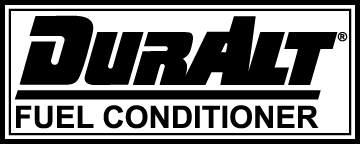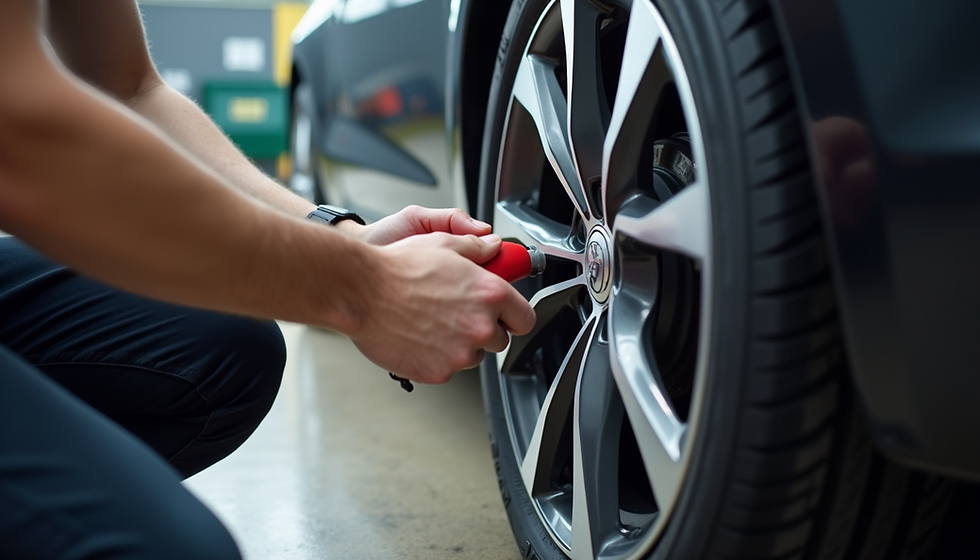Common Diesel Fuel Issues and Solutions
- Rich Lieber
- Oct 20, 2025
- 3 min read
Diesel engines are known for their durability and efficiency, but like any mechanical system, they can face challenges. One of the most frequent sources of trouble is related to the fuel itself. Diesel fuel problems can cause engine performance issues, increased maintenance costs, and even breakdowns. Understanding these common diesel problems and how to address them can save time, money, and frustration.
Common Diesel Problems and Their Causes
Diesel engines rely heavily on the quality and condition of the fuel. Here are some of the most common diesel problems that drivers and operators encounter:
1. Fuel Contamination
Contaminants such as water, dirt, and microbes can enter diesel fuel during storage or handling. Water in diesel fuel can cause corrosion, poor combustion, and damage to fuel injectors. Dirt and debris clog filters and injectors, leading to reduced engine efficiency.
How to prevent fuel contamination:
Use clean, sealed containers for fuel storage.
Regularly inspect and replace fuel filters.
Drain water separators frequently.
Store diesel fuel in a cool, dry place to minimize microbial growth.
2. Fuel Gelling in Cold Weather
Diesel fuel contains paraffin wax, which can solidify in low temperatures, causing the fuel to gel. This gelled fuel clogs fuel lines and filters, preventing proper engine operation.
Solutions for fuel gelling:
Use winterized diesel blends designed for cold climates.
Add anti-gel additives to the fuel before cold weather sets in.
Keep the fuel tank full to reduce condensation and freezing.
Use fuel heaters or insulated fuel lines in extremely cold environments.

3. Injector Problems
Fuel injectors are critical for delivering the right amount of fuel at the right time. Dirty or damaged injectors cause poor fuel atomization, leading to rough idling, reduced power, and increased emissions.
Injector maintenance tips:
Use high-quality diesel fuel to reduce deposits.
Periodically use fuel injector cleaners.
Replace injectors showing signs of wear or damage.
Schedule regular engine tune-ups to monitor injector performance.
What is the Problem with Diesel Fuel?
Diesel fuel itself can be the root cause of many engine issues. Its chemical composition and storage requirements make it susceptible to several problems:
Water contamination: Diesel fuel can absorb moisture from the air, leading to water accumulation in tanks.
Microbial growth: Bacteria and fungi thrive in the water-fuel interface, creating sludge and clogging filters.
Fuel degradation: Over time, diesel fuel oxidizes and forms gums and sediments that impair engine function. A University of Idaho study found that #2 diesel starts to degrade as soon as it is refined losing 26% of its energy content the first 28 days in storage.
Incorrect fuel type: Using the wrong diesel grade or mixing fuels can cause combustion inefficiencies.
Understanding these problems helps in taking proactive steps to maintain fuel quality and engine health.

Diagnosing Diesel Fuel Issues
Identifying diesel fuel problems early can prevent costly repairs. Here are some common symptoms and diagnostic tips:
Hard starting or no start: Could indicate fuel gelling or clogged filters.
Rough idling or misfires: Often caused by injector problems or contaminated fuel.
Loss of power: May result from poor fuel quality or clogged fuel lines.
Excessive smoke: Black or white smoke can signal incomplete combustion due to fuel issues.
Diagnostic steps:
Check fuel filters and replace if dirty.
Inspect fuel lines for blockages or leaks.
Test fuel for water content using a water-finding paste or test kit.
Use a fuel pressure gauge to verify proper fuel delivery.
Consult a professional mechanic if problems persist.
Practical Solutions to Common Diesel Fuel Issues
Addressing diesel fuel problems requires a combination of good practices and appropriate products:
Fuel additives: Use additives to improve fuel stability. DurAlt® Fuel Conditioner prevents fuel from breaking down for over a year, prevents water contamination and microbial growth while cleaning out fuel injectors and the combustion chamber, all at no NET cost.
Regular maintenance: Change fuel filters on schedule and clean fuel tanks periodically.
Proper storage: Store diesel in clean, sealed containers away from heat and moisture.
Fuel polishing: For large storage tanks, fuel polishing systems can remove contaminants and restore fuel quality.
Use quality fuel suppliers: Purchase diesel from reputable sources to ensure fuel meets industry standards.
By implementing these solutions, diesel engine users can minimize downtime and extend engine life.

For more detailed insights and updates on diesel fuel issues, exploring expert blogs and resources can be highly beneficial.
Keeping Your Diesel Engine Running Smoothly
Regular attention to fuel quality and engine maintenance is key to avoiding common diesel problems. Simple habits like using the right fuel, adding additives when necessary, and monitoring fuel filters can make a significant difference. Remember, diesel engines are robust machines, but they depend on clean, high-quality fuel to perform at their best.
Stay proactive, and your diesel engine will reward you with reliable power and efficiency for years to come.









Comments